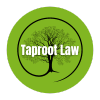Some history
In the late 1970s, the “plain language” or “plain English” methodology of professional communication swept the legal profession as a social justice remedy to increase access to information about the law. The methodology stresses writing in plain English and with the intention of clearly communicating to a specific audience, so they immediately understand information as they receive it.

My law school taught these principles in 2007. Still today, the State Bar of Michigan has a monthly column titled Plain Language. The movement is still alive today, but does it go far enough? I’d say, “No”.
“Numbers people can be difficult clients,” a former mentor warned me. “They expect our words to be as precise as their numbers and get frustrated,” he explained. This is a perfect illustration of the limits of our words and the plain language philosophy. While plain language might increase the accessibility of a professional’s writing for some, the social injustice in the lack of understandable or usable information about the legal system still stands strong. Many people find it difficult to understand the written word, and comprehension can vary throughout life.
Communication is more than words! Words can be completely accurate to two people but it’s useless if they don’t have a common understanding. I’ve noticed this lack of effective communication in other professions as well.
“Easy fix” is plain language, right?
Here is the scene: Days before closing and after inspections, Brian’s realtor announced that there was a problem with the legal description. As written, his garage was on his neighbor’s property. “Go ahead and close,” the realtor said. “It’s an easy fix.” Trusting his realtor and the promise of an easy fix, Brian closed.
What’s an “Easy Fix” anyway?
In Brian’s mind, “easy” meant cheap, fast, and without harmful consequences for him. Unfortunately, Brian experienced a process that was expensive, slow, and weighed on his mind. He shared with me:
“The realtor said to just go to the township, pick up a land division application, and pay a small fee. There are a ton of costs buried in that application. It cost about $10,000. And it’s still not done. I now realize that I didn’t have much recourse against the seller to chip into the costs after we closed. Just because I have to pay whatever to get a house these days, it does not mean I’m made of money.”
Brian liked his realtor but was disappointed with his overall (and costly) experience. This kind of disappointment is not uncommon with clients of other professionals, including lawyers. It creates anxiety, anger, and mistrust of the professional and the profession. When discontent like this exists, the client’s emotions about the lawyer can serve only a distraction from accomplishing the original goals according to their values.
My quest? Focusing on values to create a more accessible experience
Brian had to deal with the legal description issue either way. His experience was poor because the professional he relied on didn’t understand his values. Brian still does not understand the realtor’s definition of “easy fix.”
Professionals often substitute their own values for their client’s values automatically and because they are also distracted. We are so focused on memorizing and reciting the process to the clients that we may forget to take a careful look at how that truly affects our clients. When professionals substitute their values for their clients’ values, people like Brian get hurt.
 Each case—each human—is complex. At Taproot, we are moving beyond plain language to create more precise and relatable communication tools. Knowing some of our clients are visual learners, we create graphics to convey information and processes. We are also developing tools that are revised and improved based on the feedback we receive from clients. We offer perspective and context through writing like this so that the legal system is accessible to EVERYONE. These tools help us do less memorizing and reciting to create more space for listening and practical problem-solving with patience.
Each case—each human—is complex. At Taproot, we are moving beyond plain language to create more precise and relatable communication tools. Knowing some of our clients are visual learners, we create graphics to convey information and processes. We are also developing tools that are revised and improved based on the feedback we receive from clients. We offer perspective and context through writing like this so that the legal system is accessible to EVERYONE. These tools help us do less memorizing and reciting to create more space for listening and practical problem-solving with patience.
If you have a complex legal question and need guidance, Taproot is here to help and tailor our services to YOUR needs. Call us at 906-284-8426 to learn more about our coaching and Make-it-Legal services. Or, head to our brand new website to learn more about how we work and schedule your appointment with us online!
